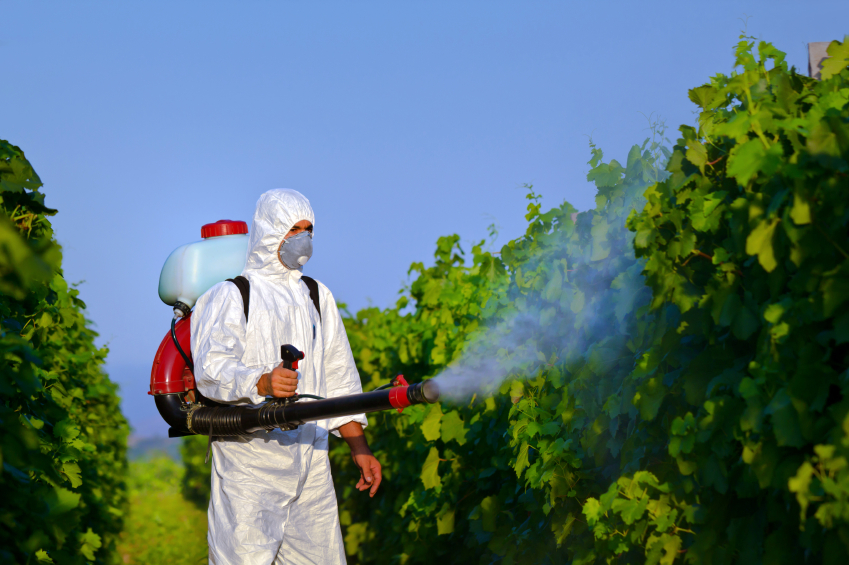Scientists Link Prenatal Pesticide Exposure to Autism
Researchers at the University of California, Davis, recently conducted a study of almost 1000 women in California, looking at their pesticide exposure during pregnancy and incidences of autism in their young children. They found pregnant women who lived within a mile of an area treated with three different types of pesticides were at a two-thirds higher risk of having a child with autism spectrum disorders or developmental delays. These pesticide-treated areas included parks, golf courses, pastures and roadsides. Excerpts from a UC Davis article on June 22, 2014 on the subject are below. The full study can be found here.
‘“Pregnant women who lived in close proximity to fields and farms where chemical pesticides were applied experienced a two-thirds increased risk of having a child with autism spectrum disorder or other developmental delay, a study by researchers with the UC Davis MIND Institute has found. The associations were stronger when the exposures occurred during the second and third trimesters of the women’s pregnancies.
The large, multisite California-based study examined associations between specific classes of pesticides, including organophosphates, pyrethroids and carbamates, applied during the study participants’ pregnancies and later diagnoses of autism and developmental delay in their offspring. It is published online today in Environmental Health Perspectives.”
‘“This study validates the results of earlier research that has reported associations between having a child with autism and prenatal exposure to agricultural chemicals in California,” said lead study author Janie F. Shelton, a UC Davis graduate student who now consults with the United Nations. “While we still must investigate whether certain sub-groups are more vulnerable to exposures to these compounds than others, the message is very clear: Women who are pregnant should take special care to avoid contact with agricultural chemicals whenever possible.”’
“California is the top agricultural producing state in the nation, grossing $38 billion in revenue from farm crops in 2010. Statewide, approximately 200 million pounds of active pesticides are applied each year, most of it in the Central Valley, north to the Sacramento Valley and south to the Imperial Valley on the California-Mexico border. While pesticides are critical for the modern agriculture industry, certain commonly used pesticides are neurotoxic and may pose threats to brain development during gestation, potentially resulting in developmental delay or autism.”
“The study was conducted by examining commercial pesticide application using the California Pesticide Use Report and linking the data to the residential addresses of approximately 1,000 participants in the Northern California-based Childhood Risk of Autism from Genetics and the Environment (CHARGE) Study. The study includes families with children between 2 and 5 diagnosed with autism or developmental delay or with typical development. It is led by principal investigator Irva Hertz-Picciotto, a MIND Institute researcher and professor and vice chair of the Department of Public Health Sciences at UC Davis. The majority of study participants live in the Sacramento Valley, Central Valley and the greater San Francisco Bay Area.”
“For the study, researchers used questionnaires to obtain study participants' residential addresses during the pre-conception and pregnancy periods. The addresses then were overlaid on maps with the locations of agricultural chemical application sites based on the pesticide-use reports to determine residential proximity. The study also examined which participants were exposed to which agricultural chemicals.”
‘“We mapped where our study participants’ lived during pregnancy and around the time of birth. In California, pesticide applicators must report what they’re applying, where they’re applying it, dates when the applications were made and how much was applied,” Hertz-Picciotto said. “What we saw were several classes of pesticides more commonly applied near residences of mothers whose children developed autism or had delayed cognitive or other skills.”’
“Exposures to insecticides for those living near agricultural areas may be problematic, especially during gestation, because the developing fetal brain may be more vulnerable than it is in adults. Because these pesticides are neurotoxic, in utero exposures during early development may distort the complex processes of structural development and neuronal signaling, producing alterations to the excitation and inhibition mechanisms that govern mood, learning, social interactions and behavior.”
‘“In that early developmental gestational period, the brain is developing synapses, the spaces between neurons, where electrical impulses are turned into neurotransmitting chemicals that leap from one neuron to another to pass messages along. The formation of these junctions is really important and may well be where these pesticides are operating and affecting neurotransmission,” Hertz-Picciotto said.’
Read entire UC Davis article here.


